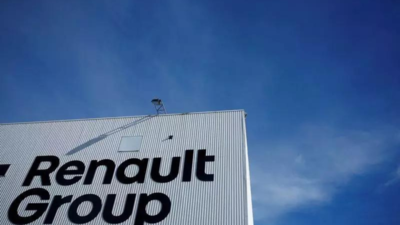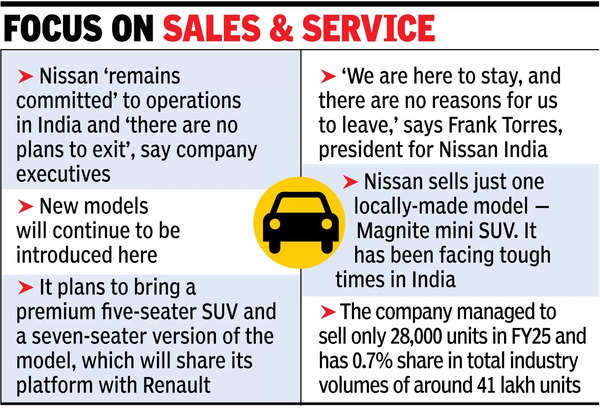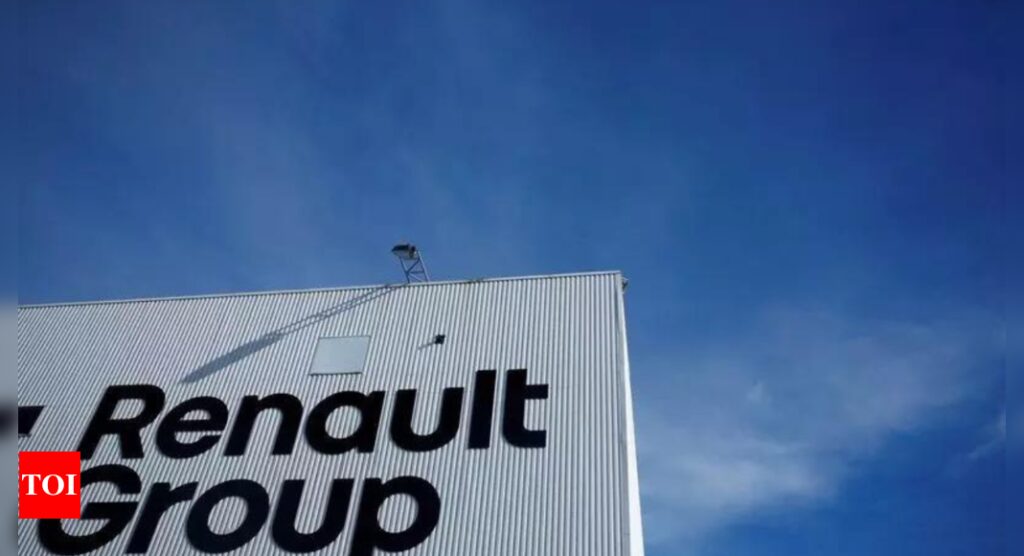
NEW DELHI/CHENNAI: Japan’s Nissan has decided to stop manufacturing cars in India and will sell its 51% shareholding in a factory in Chennai to joint venture partner France’s Renault.
The company, which has struggled to gain market share in India, despite spending over 550 million euros till date and further committing another 140 million euros for new products, will now pay Renault to manufacture its models at Chennai plant as it focuses on boosting sales and service. However, company executives insisted that Nissan “remains committed” to its operations in India, and “there are no plans to exit”.
Business has been tough for Nissan in India that sells just one locally-made model – Magnite. The company managed to sell only 28,000 units in FY25 and has a 0.7% share in total industry volumes of around 41 lakh units.

Frank Torres, president for Nissan India as well as local MD Saurabh Vats, said new models will continue to be introduced here and there will be no let-up in launches. “We are here to stay, and there are no reasons for us to leave,” Torres said, when asked whether the company is preparing for an eventual exit after selling its factory, a route previously adopted by US giants General Motors and Ford.
He added that Nissan remains “free” to source cars from other car companies in India and there are “no restrictions” to buy only from Renault, which is its global alliance partner. Nissan previously had bought a mini hatchback from Maruti Suzuki that it sold in markets outside India. The company plans to bring in a premium five-seater SUV as well as a seven-seater version of the model, which will share its platform with Renault. It will also get an under Rs 10 lakh MPV, which will operate in the category of Maruti Ertiga and Renault Triber.
The Chennai factory has a capacity of producing 4 lakh cars per annum. With Renault and Nissan performing below-par in India, only a third of this is being utilised at present.
While Nissan goes cautious on India, Renault intends to make new investments, while also exploring electrics. “India is a key automotive market and Renault Group will put in place an efficient industrial footprint and ecosystem,” Luca de Meo, Global CEO of Renault said.
It is believed that Renault plans to sharpen its focus on India and is hoping to replicate the success it had once achieved with models like Duster SUV and Kwid mini. And while changing the ownership structure at the factory, Renault and Nissan will continue to jointly operate the Renault Nissan Technology and Business Center India in which the Japanese company will retain its 49%-stake and Renault 51% holding.














